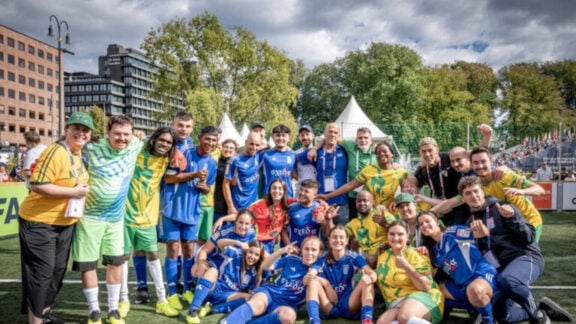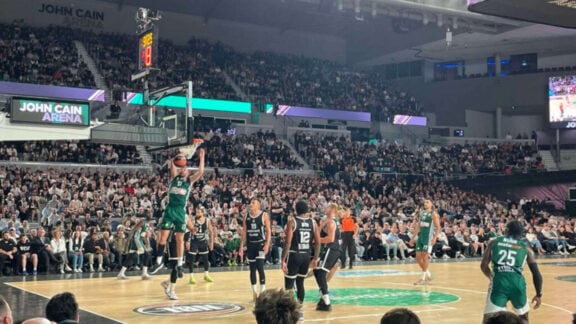What kind of society should Greece aim to become in the future, namely, when the European project has itself been put into question?
This was the question posed and explored by director of the Institute for Social Justice and research professor in philosophy and political thought, Nikolas Kompridis, at the Greek Centre on Thursday night in his open seminar ‘Multiple Pasts/Alternative Futures: Rethinking ‘Greek’ Identity after Austerity’.
While he admits that the country’s continued economic hardship and politically turbulent circumstances may not seem like the best time to reconsider questions of Greek history and identity, the professor is confident it holds the key to future success, particularly as refugees continue to seek asylum on Greece’s doorstep, and across the globe.
“Let’s say in the next few years all this catastrophe around Greece’s economic conditions is addressed and things start to get better, it is still a question about how inclusive a society Greece can be. The refugee issue is one dramatic way in which the test of its inclusiveness, the whole continent’s inclusiveness, is being dramatically played out,” Professor Kompridis told Neos Kosmos.
And he says there’s no better place to start than rethinking the story told about Greek national identity.
“If you go back to a city like Thessaloniki, up until the Second World War you have a multi-ethnic, multi-national, religiously diverse city. But the story Greeks tell about the formation of the Greek state excludes its Muslim, Jewish, Albanian, multi-ethnic past and all the presence of many different peoples on that land over centuries,” he explains.
If history were to be retold to include these aspects, Professor Kompridis says we would have “not a pure Greek identity from the ancient world, but rather a very mixed, diverse, pluralistic history of people who made a home on that soil”, a reality not dissimilar to that of countries like Australia and his adoptive country, Canada.
Born in Greece, and having migrated to Canada with his family at a young age, the academic acknowledges to looking at the matter from an immigrant’s perspective and not of those in Greece. But he sees this as an advantage.
“Many people in the Greek diaspora have an abiding concern for things that are going on in Greece and to the country. I think, what can my perspective, as a member of the diaspora, who’s lived and been socialised in a society that is multicultural and multilingual, contribute to a European nation state that has a homoethnic conception of its identity, which is in conflict really with the historical record?”
At the core, the professor says many Greeks continue to be confronted by the country’s true history due to its turbulent past.
“There are historians that tell us that the formation of the Greek state required this purification of Greek identity, like back in the 1920s with the population exchange,” which his paternal grandparents were a part of.
“You have these gigantic movements of peoples from one place to the other, leaving what was home for many, many generations, to go to a new place where they weren’t entirely welcome on both sides. That’s a pretty traumatic event. And then you have the Civil War and a kind of ongoing battle over what Greece is politically and culturally.”
But too often, he says, Greece’s definition of itself seems to require the complete erasure of its Ottoman, Jewish, and Albanian past.
“Up until the refugee crisis, they would say ‘the Albanians are invading Greece’. Well, they were already there for centuries!” he exclaims.
“So it’s a very strange constellation of stories that are meant to support and justify a certain conception of what it is to be Greek and the emergence of a free and independent Greek state.”
By rethinking identity, he says the benefits could be numerous, and by being inclusive, it will open up a space of possibility to think of ways of moving forward without the current limitations it faces.
While he admits multicultural nations still experience issues and conflict, he urges us to think of the alternative: “Do you want a white Australia? Or do you want a pluralistic, multiracial, multicultural Australia?”
He says the issue is of course not just a Greek problem, but one for all of contemporary Europe, having become particularly apparent from the many instances of intolerance during the refugee crisis, where nations have reverted to an ethnically homogeneous conception of themselves.
But if the approach to identity doesn’t change, Professor Kompridis is adamant things aren’t going to get easier any time soon.
“There are going to be many, many more of them [refugees], because now we’re just looking at refugees who are coming because of failed states and war. But in the very, very near future, an exponentially greater number of refugees will be fleeing climate change catastrophes − that’s the future. If we don’t think about how we can live in a way that is just, then frankly, we’re screwed.”









